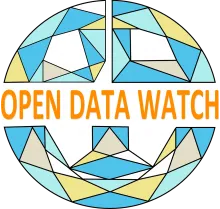About the initiative
In the context of the 2030 Agenda’s underlying principle to ensure that no one is left behind, citizen contributions to data helps fill critical data gaps for groups suffering from marginalization and increase the extent to which their experiences are reflected in statistics. In addition, some citizen contributions to data initiatives further advance important values such as fairness, inclusiveness, openness and transparency in statistics and public policy.
Unleashing the full potential of citizens for data, however, faces many challenges. These, for example, include the lack of trust between the state and non-state actors, concerns about the quality and sustainability of data collected by non-state actors, and the statistical capacity of CSOs. Responding to these challenges, the United Nations Statistics Division and the United Nations Entity for Gender Equality and the Empowerment of Women have jointly convened a multi-stakeholder collaborative of countries and regional and international agencies, aimed to establish a platform for collaboration and exchange of experiences and to advance the work in this area.

Objective
The initiative, known as the Collaborative on Citizen Data, aims to bring together partners from all communities within national data ecosystems to achieve two main objectives:
Filling critical data gaps on groups that are often less visible in data, such as migrants, persons with disabilities and indigenous populations among others and improving data on gender issues, to ensure their experiences and needs are reflected in the data for the implementation and review of the Sustainable Development Goals (SDGs).
Enhancing citizen participation in government decision-making and further advancing values such as fairness, inclusiveness, openness, and transparency in statistics.
Members
The Collaborative welcomes contributions from all communities, including NSOs, line ministries that are part of the national statistical system as data producers and/or data users for policymaking, CSOs that are engaged in data production and/or data use, research institutions, public and private institutions which can partner with/support NSOs in driving inclusive data processes, development partners (donors), and regional and international organizations. For representation of civil society organizations, members should be those that are representative (or network) of variety of CSOs that operate at different levels: global, regional, national and sub-national/ local.
Steering Committee
UN Statistical Division (co-lead)
UN Women (co-lead)
The Danish Institute for Human Rights
Global Partnership for Sustainable Development Data
The International Civil Society Centre
The Partnership in Statistics for Development in the 21st Century
The Stakeholder Group of Persons with Disabilities for Sustainable Development
Open Data Watch
The World Bank
United Nations Institute for Training and Research









